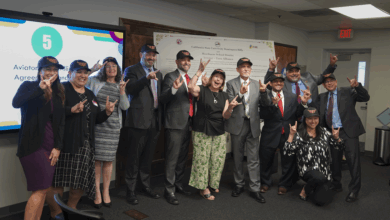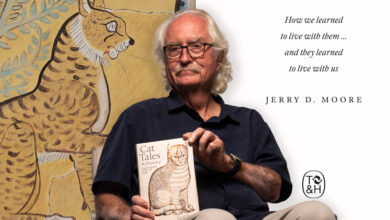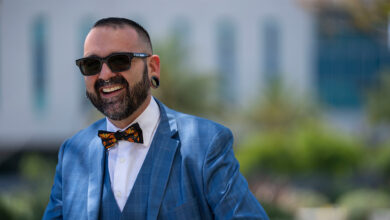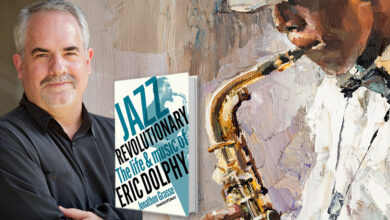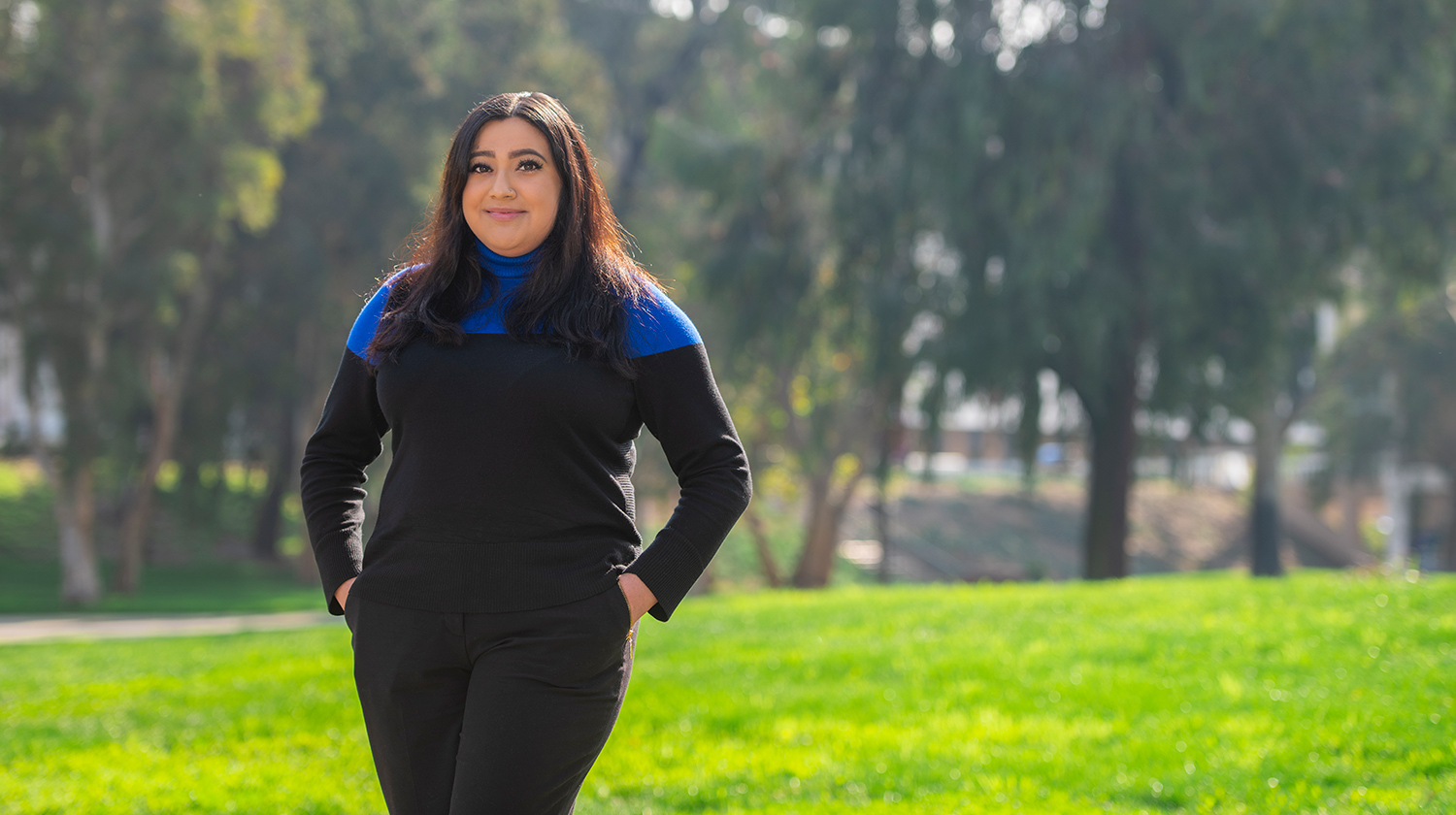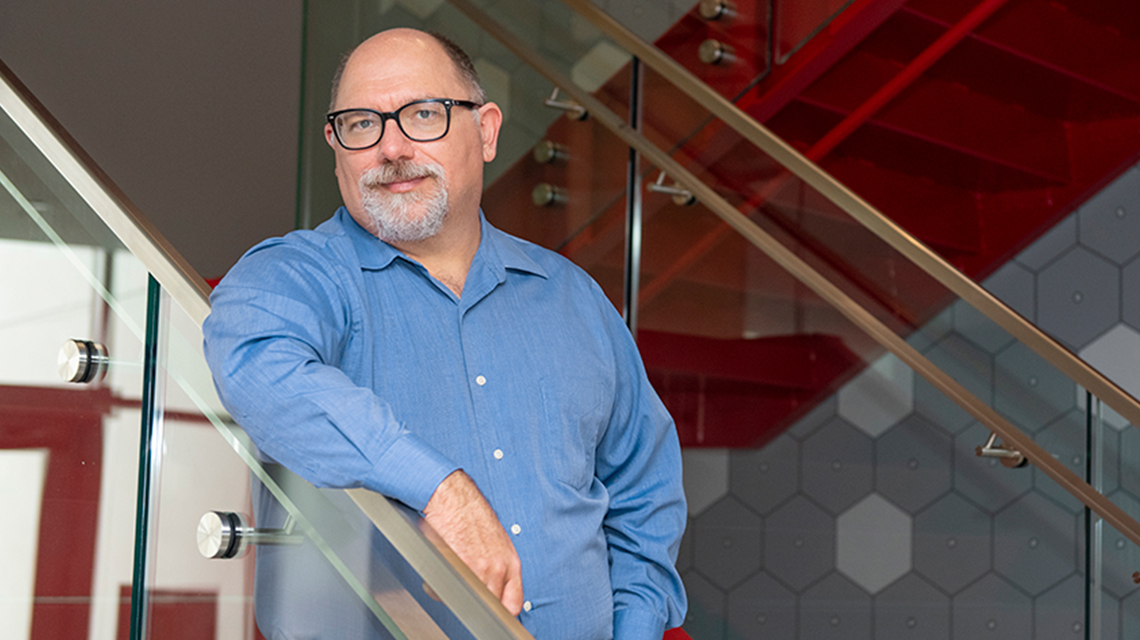
Professor of Biology Terry McGlynn says it’s not the technical details that really drive research, or the “very minute questions” scientists seek to answer. He believes the best fundamental questions are often asked by those who are new to the field.
McGlynn has always treasured the curiosity-driven insights his students bring to his research of the natural world, and the “really big questions” they have asked often during field research in remote locations such as the rain forests of Coast Rica, in Australia, or while just exploring a location’s raw beauty.
McGlynn began teaching at CSUDH in 2007 as an assistant professor of biology, but he began traveling to rain forests to study ants in 1995 when he was pursuing his Ph.D. at the University of Colorado.
“Many people see science as a world that is basically understood and described, and we’re merely trying to fill in holes, but I believe most scientists see the world as a place that we barely understand,” suggests McGlynn. “If you walk with children they will ask, ‘What is this?’ or ‘How does that work?’ All I can say as a scientist is ‘I don’t know.’ Young people ask questions that we have been trained to not ask. Sometimes we get lost in the details and forget why it all matters.”
Three years ago, McGlynn scaled back his teaching and research to serve as director of the Office of Undergraduate Studies. While his career has steadily changed over the years, his reputation as a hands-on educator who effectively helps students elevate their academic endeavors has not.
On April 20, McGlynn achieved another career milestone. He was honored with CSUDH’s 2021 Presidential Outstanding Professor Award. Created to recognize excellence in teaching, the award is presented to an individual who has demonstrated outstanding achievements in all areas of faculty performance, who is a respected educator and expert his or her field and is an outstanding member of the university and the community.
In February, Professor of Biology Terry McGlynn was named a fellow for the 2021-22 North American Cohort of the Earth Leadership Program, which helps address some of the world’s most pressing environmental and sustainability challenges.
“This was really humbling. There are so many other faculty members on campus who are just excellent at what they do, and who are supreme teachers, researchers, and role models whose work I really admire. Their students think the world of them,” McGlynn says.
Teacher of Teachers
CSUDH is a renowned teaching-focused university, and McGlynn enjoys being in a niche that he says some consider an early career steppingstone in higher education.
Early in McGlynn’s CSUDH tenure, he was an adviser for biology majors working toward a teaching credential in K-12 STEM education. He later worked with the Master Teacher Fellows Program, and the Robert Noyce Teacher Scholarship Program.
“That’s when I really started to engage in work outside my department, and at the same time I was running my research program and taking students to all this cool international fieldwork,” he says. “Some of the students who I worked with back then are now teachers in high school, and now their graduating students are enrolling in our curriculum. It’s a rewarding cycle and really nice to see.”
A long-time member of CSUDH’s Academic Senate who has also worked in Title IX and gender equity, McGlynn is now working to expand the Office of Undergraduate Research for students, a department that he helped take root at the university in 2013.
“I was part of a grassroots team of faculty who then lobbied our provost to create this office. Four or five of us got together and said, ‘This is what our campus needs,”’ says McGlynn, who has added a full-time staff member to the office.
One of McGlynn’s goals is to increase his office’s presence and efficacy on campus by supporting undergraduate research across curricula with course-based research experiences as an addition to CSUDH’s classic model of apprentice-based research.
The office is also supporting students to apply for fellowships, and to fund their research and travel to present at conferences. There are also workshops to help students improve their CVs, find summer research opportunities at other institutions, and to apply for Ph.D. programs and funding through the National Science Foundation and other organizations.
“There are a bunch of existing programs on campus for STEM students, such as RISE and McNair, and we’re trying to provide support students even if they’re not in those programs,” McGlynn says. “We have made this a one-stop shop for all students.”
In November 2020, Terry McGlynn published the book “The Chicago Guide to College Science Teaching,” which offers a practical guide for anyone teaching STEM disciplines at the college level. The book consolidates the teaching advice from the blog Small Pond Science.
Another positive and unexpected addition to McGlynn’s career has been his popular blog Small Pond Science, which focuses on how scientists research, teach, and mentor in all kinds of academic institutions, including teaching-centered universities.
“It really has revolutionized my career. It gives me this visibility off campus that I otherwise wouldn’t have, and it has increased my understanding about faculty experiences,” says McGlynn, whose Twitter following has also grown significantly since launching Small Pond Science.
Like his early work, the blog has helped enhance McGlynn’s positive influence on the teaching pool. “There are a lot of people who say, ‘Well, I am now a professor at small liberal arts college, or ‘I applied for a job at a Cal State because I read your blog and realized that this is something I want to do,’” he shared.
“This is great feedback, and an indicator that it’s affecting a lot of people,” McGlynn adds. “There just are not that many people who have spoken about their experience of working at a teaching-focused institution, or the importance of undergraduate research in teaching. So, the blog helps those people feel less alone.”




